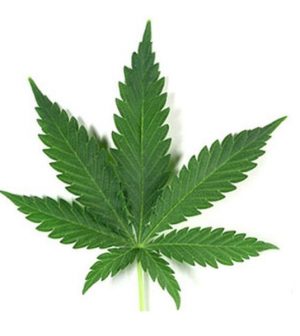- Could Your Grocery Store Meat Be Causing Recurring UTIs?
- Are You Making This Expensive Thermostat Error This Winter?
- Recognizing the Signs of Hypothyroidism
- 10 Strategies to Overcome Insomnia
- Could Artificial Sweeteners Be Aging the Brain Faster?
- Techniques for Soothing Your Nervous System
- Does the Water in Your House Smell Funny? Here’s Why
- Can a Daily Dose of Apple Cider Vinegar Actually Aid Weight Loss?
- 6 Health Beverages That Can Actually Spike Your Blood Sugar
- Treatment Options for Social Anxiety Disorder
Medical Marijuana Won’t Help Most Sick Kids

Medical marijuana appears to hold only limited promise for sick children and teenagers, a new review suggests.
It can help kids fighting cancer with chemotherapy-related nausea and vomiting, and it can control seizures somewhat in children with epilepsy, said study author Dr. Shane Shucheng Wong. He is a psychiatrist with Massachusetts General Hospital, in Boston.
But there’s not enough evidence to say that medical marijuana can help kids with any other medical conditions, such as neuropathic pain, post-traumatic stress disorder (PTSD) or Tourette’s syndrome, Wong added.
Medical marijuana is now legal in 29 states and the District of Columbia, making it potentially available as a medication for kids.
“Children and adolescents can legally access medical cannabis if they have certification from a doctor and from their legal guardian,” Wong said. “As a result, doctors and families really need to understand what we know and what we don’t yet know about medical cannabis to make the best decision for the child’s health.”
A review of medical literature revealed 21 studies directly examining the potential benefits of medical pot for children and teens, the researchers said. These included six studies on the impact pot has on chemotherapy-induced nausea and vomiting, and 11 studies on epilepsy.
Studies involving pot’s usefulness in controlling chemotherapy side effects — four of which were randomized, controlled trials — found that medical cannabis was significantly better than anti-nausea drugs, according to the review.
The active intoxicating ingredient in pot, THC, appears to reduce nausea and vomiting in these young patients, the trials showed.
Since 1985, there have been two drugs approved by the U.S. Food and Drug Administration to treat chemo side effects that are forms of synthetic THC, Wong said. The drugs are dronabinol (Marinol) and nabilone (Cesamet).
The epilepsy studies, which included one randomized trial, showed that another chemical compound in pot called cannabidiol (CBD) appears to reduce the frequency of seizures in children and teens. CBD does not cause intoxication.
An epilepsy drug based on CBD, Epidiolex, is currently in fast-track phase 3 trials “to try to show enough scientific evidence to support its use for potential [FDA] approval,” Wong said. “It certainly is promising.”
Research is lacking on any other uses for medical marijuana in children and teenagers, the researchers concluded.
Studies to see whether medical pot could help treat other conditions all lacked control groups and other gold-standard research procedures, “so they were at very high risk of bias,” Wong explained.
Even though there seem to be some good uses for medical pot, doctors and families need to weigh potential negative effects in treating children and teens with marijuana, Wong noted.
“Particularly frequent use of high-potency THC over extended periods of time suggests negative effects on learning, memory, attention and problem-solving ability,” Wong said. “Children’s brains are really actively developing, and so they seem to be much more vulnerable to the potential negative effects of cannabis for cognition than adults.”
Other side effects can include drowsiness, dizziness, changes in mood and appetite, diarrhea and, in some cases, actually causing seizures to grow worse, Wong said.
And, according to Dr. Kashmira Rustomji, there’s also some concern that kids who use medical pot might feel more comfortable later using it to get high. Rustomji is an assistant professor of pediatrics and psychiatry with the Icahn School of Medicine at Mount Sinai in New York City.
“The danger in legalizing marijuana and making it available to kids is that the perspective from young people might be, ‘It’s medically OK to use, so it should be OK to use it recreationally as well,’ ” she said.
“My perspective is that there is some good evidence for some medical uses of marijuana, but we don’t have enough pediatric data,” Rustomji continued. “We still need to do a lot of other pediatric studies and randomized controlled studies to see where there is good long-term data for these uses.”
The review was published online Oct. 23 in the journal Pediatrics.
More information
For more on medical marijuana and kids, visit Children’s Hospital Colorado.
Source: HealthDay
Copyright © 2026 HealthDay. All rights reserved.










